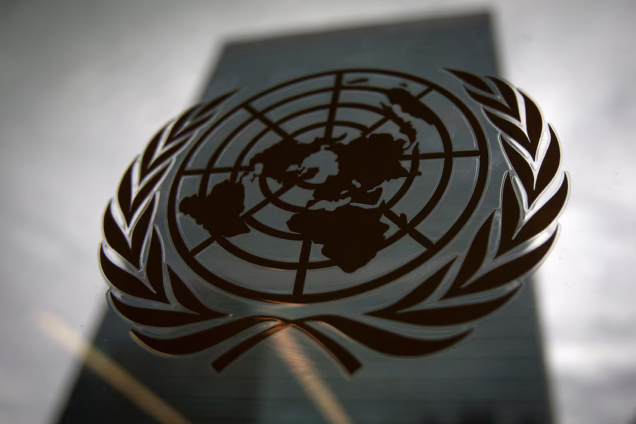Human trafficking has risen sharply due to conflicts, climate-induced disasters and global crises, according to a United Nations report published on Wednesday.
In 2022, the latest year for which data is widely available, the number of known victims worldwide rose to 25% above 2019's pre-pandemic levels, the United Nations Office on Drugs and Crime's Global Report on Trafficking in Persons said. A sharp fall in 2020 had largely disappeared by the following year.
"Criminals are increasingly trafficking people into forced labour, including to coerce them into running sophisticated online scams and cyber fraud, while women and girls face the risk of sexual exploitation and gender-based violence," the report said, adding that organised crime was mainly responsible.
Children accounted for 38% of detected victims, compared to 35% for figures for 2020 which formed the basis of the previous report.
The latest report showed adult women remain the largest group of victims, representing 39% of cases, followed by men at 23%, girls at 22% and boys at 16%.
The total number of victims in 2022 was 69,627.
The most common reason by far for women and girls being trafficked was sexual exploitation at 60% or more, followed by forced labour. For men, it was forced labour and for boys, it was forced labour and "other purposes" in roughly equal measure.
Those other purposes include forced criminality and forced begging. The report said the growing number of boys identified as victims of trafficking could be linked to rising numbers of unaccompanied minors arriving in Europe and North America.
The region of origin that accounted for the largest number of victims was sub-Saharan Africa with 26%, though there are many different trafficking routes.
While improved detection could account for the growing numbers, the report said it was likely a combination of that and more trafficking in general.
The biggest increases in cases detected were in sub-Saharan Africa, North America and the 'western and Southern Europe' region, according to the report, with migration influxes being a significant factor in the latter two.
Latest Stories
-
How Ghana lost over GH¢2bn swapping gold for fuel
8 minutes -
‘Our indigenous cocoa buyers may go extinct’ – Cocobod CEO warns of LBC collapse
1 hour -
Cocobod pleads for 3% of banks’ reserves to rescue local LBCs
2 hours -
There was no syndicated loan in 2024/25 so no seed fund for LBCs – Randy Abbey discloses
2 hours -
First black Premier League referee Rennie dies aged 65
3 hours -
Trump’s travel ban on Togo, other 11 countries goes into effect today
4 hours -
US and China set to meet for trade talks in London
4 hours -
Italy citizenship referendum: ‘I was born here – but feel rejected’
4 hours -
Trump’s intervention in LA is a political fight he is eager to have
4 hours -
Magnitude 6.5 earthquake strikes Colombia
4 hours -
British soldier arrested in Kenya over rape allegation
5 hours -
Trump-Musk row heightens fears over NASA budget cuts
5 hours -
Rwanda pulls out of regional bloc over DR Congo row
5 hours -
William warns ocean life ‘diminishing before our eyes’
5 hours -
When Gold Becomes Poison, and the Foolish Cut Down the Tree with the Shade
6 hours

